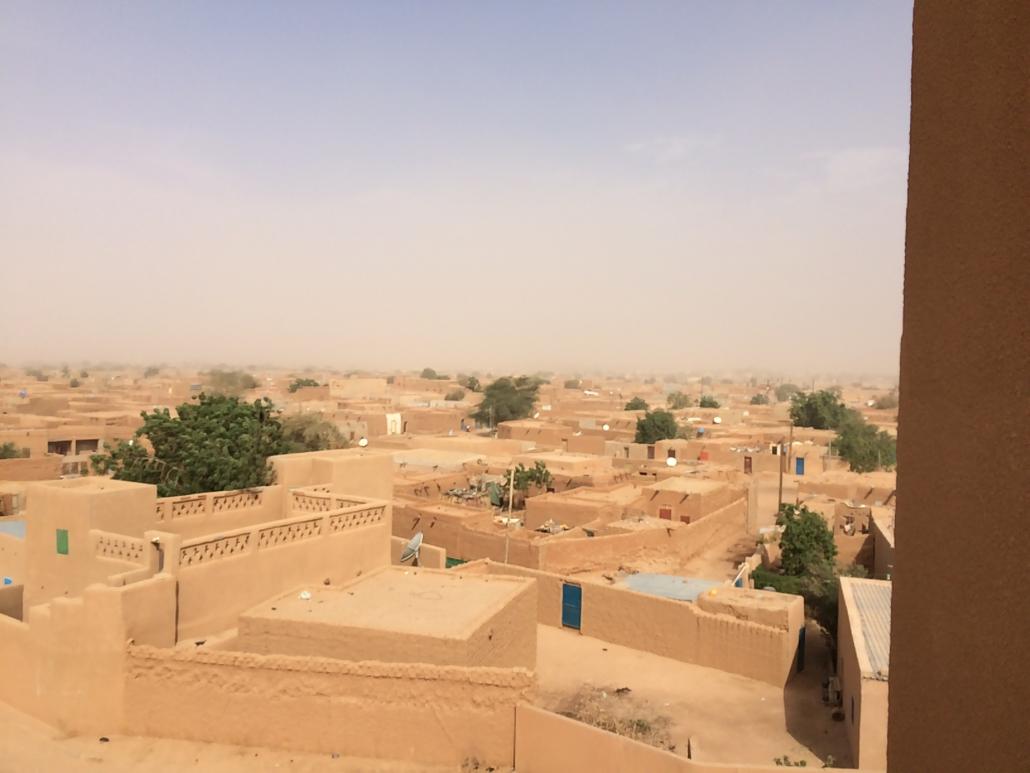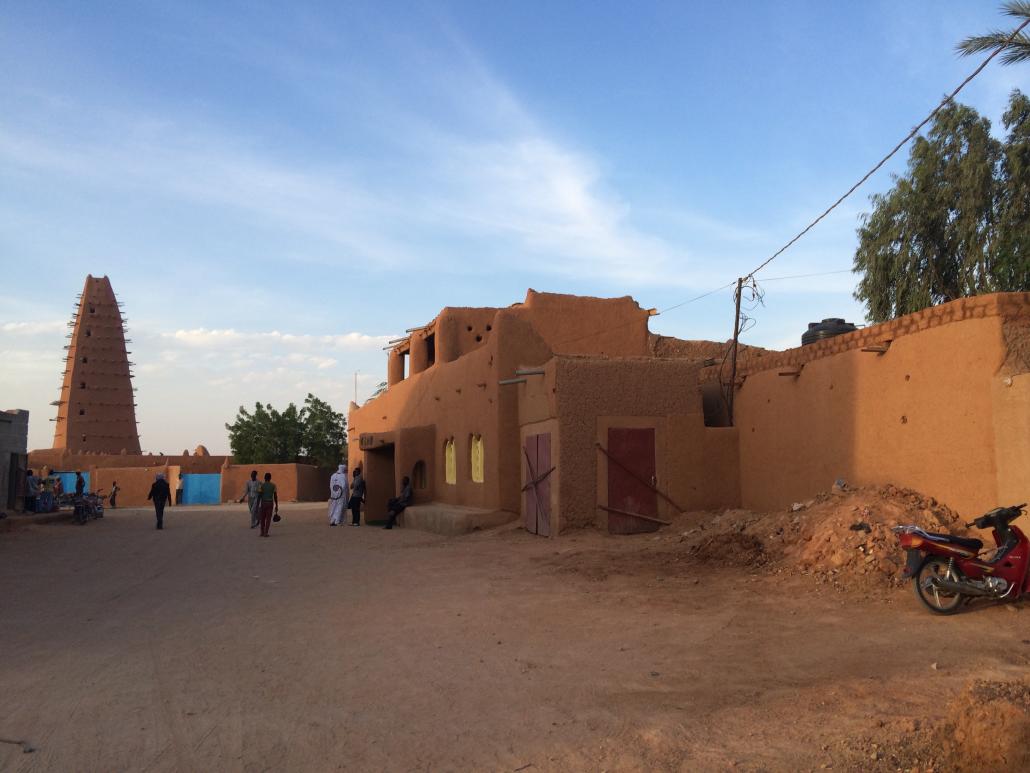Smuggling of migrants: The misused spirit of the Palermo Protocol, in the light of the Nigerien experience
Posted:
Time to read:
Post by Delphine Perrin. Delphine is a researcher at IRD (Institut de Recherche pour le Développement) - Aix Marseille University. She is part of LPED (Laboratoire Population Environnement Développement). Delphine is a jurist and a political scientist. Her research focuses on legal and political dynamics related to migration in Mediterranean and Sahelian Africa. Delphine also teaches migration law and policies at the Institut d’Etudes Politiques of Aix-en-Provence.Recently, she has co-edited Frontières, sociétés et droit en mouvement : dynamiques et politiques migratoires de l’Europe au Sahel, Bruylant, 2019.

Since the fall of Gaddafi’s regime in 2011 and Libya’s inability to assume the role of border guard of the European Union (EU), European countries have sought the cooperation of countries further south to stop migration upstream (i.e. via the Khartoum process in 2014 and the emergency trust fund for Africa launched in Valletta in 2015). Niger is a member state of the ECOWAS (Economic Community of West African States), a free movement space, and it is a land of transit and departure to Algeria and Libya. As such, it has experienced strong external pressure associated with the central Mediterranean route to Europe.
Against this background, and following the death of 92 Nigeriens traveling to Algeria in 2013, Niger has taken steps to prevent mobility northward. Unlike its Maghrebian neighbours, it has not criminalized “illegal exit” nor strengthened sanctions against migrants. Instead, Niger has tackled activities related to migration, especially transportation and accommodation through unprecedented judicial activity around the offences of smuggling of migrants (defined by Law 2015-36 of 26 May 2015) and trafficking in persons (defined by Order 2010-86 of 16 December 2010). A series of convictions has been handed down against Nigerien carriers. This has been possible thanks to the training of “actors of the criminal chain” (police, security forces, judges) to ensure the legal classification of the facts centered on trafficking and smuggling.
In this post I reflect on the lessons learned from the review of Law 2015-36 and some court rulings on smuggling of migrants. I argue that the original spirit of the Palermo Protocol against migrant smuggling is misused in the service of the fight against migration. In a regional context of high informal mobility, and the development of equally informal economic activity around this mobility, the fight against smuggling has found an easy grip. Interpreted broadly, migrant smuggling applies to activities, mainly transportation, which have little or nothing to do with transnational organized crime and which sometimes does not even involve crossing a border. By setting aside the pre-existing legal framework (Ordinance of 1981) in favour of criminalizing smuggling Niger joins a mainstream discourse that is both likely to foster its geopolitical legitimacy, while weakening its population and the spirit of the ECOWAS.
Is there a link between migrant smuggling and transnational organized crime?
Law 2015-36 was adopted in Niger as an application of the Palermo Protocol against the Smuggling of Migrants by Land, Air and Sea, supplementing the United Nations Convention against Transnational Organized Crime, adopted in 2000. This Convention aims to combat various forms of criminal organization (drugs, “white collar”, etc.) and to encourage cooperation between states for this purpose. Following a proposition by Austria and Italy to add migrant smuggling to the Convention, the Protocol defined the smuggling of migrants as: “The procurement, in order to obtain, directly or indirectly, a financial or other material benefit, of the illegal entry of a person into a State Party of which the person is not a national or a permanent resident”.
The travaux préparatoires (official records) for these instruments reveal their initial spirit, which must guide their application, together with the Model Law against the smuggling of migrants, developed by the United Nations Office on Drugs and Crimes (UNODC). The model law recalls that the Protocol should be read in conjunction with the Convention against Transnational Organized Crime, because “it is the smuggling of migrants by organized criminal groups -and not mere migration or the migrants themselves- that is the focus of the Protocol” (p. 6). The official records show that states have widely discussed the definition of “organized crime”, which they have clearly associated with a “criminal organization”, characterized by structure and continuity: a group of at least three people, “existing for some time”, for the purpose of committing offences for profit. The scope of the Protocol is unambiguous: it applies when the offences are “transnational in nature and involve an organized criminal group” (art. 4). However, as the model law clarifies, the offence of migrant smuggling is not linked to the existence of an organization, nor even to the element of transnationality (p. 7). This is reflected in the Nigerien law: the existence of an organized criminal group is an aggravating circumstance (art. 16), not a constituent element of the offence.
The semantic shift in migrant smuggling has two facets: the force of the discourse against “organized crime” on the one hand and the generalization of criminalization to a multiplicity of activities related to mobility on the other. Public statements and texts target “smuggling (or even trafficking) networks” and “criminal organizations”, using alarmist vocabulary. Nigerien law 2016-22 of 16 June 2016 which amended the penal code, moreover, granted to the anti-terrorism division of the Tribunal de Grande Instance (TGI: high court) of Niamey the (only) authority to judge the offence of migrant smuggling.
However, ensuring illegal entry into Niger is sufficient to constitute the offence of “smuggling of migrants”, without reference to an agreement or an organization, and even concerning the transport of a single foreigner, as it appears in case 18/19 (Ministère public v. Kamparin Djabwanga, Tribunal of Niamey).
It is noteworthy that Ordinance 81-40 of 29 November 1981 on the entry and stay of foreigners in Niger already penalizes -with sentences of four months to four years imprisonment- the facilitation of irregular entry, stay and movement of a foreigner in Niger (art. 13). It would have been possible to revise this text to add aggravating circumstances, as did France, Canada and Tunisia in applying the Palermo Protocol. Such a revision would also have clarified the lucrative nature of infringement and would have thereby eliminated the ordinance’s potential of penalizing voluntary aid.
Instead, the international and European pressure around the fight against smuggling, the human, financial and material means associated with it led Niger to adopt a law which was not necessary, but allowed a repression of smugglers who were not considered so before. Law 2015-36 allows—and the decisions of judges entail—the criminalisation of activities hitherto tolerated by the authorities, socially rooted and economically justified, and practised by individuals whose network, if any, is often limited to contacts between two points. The repression of the smuggling of migrants, broadly understood, occurs in a context of high informality and shortage of economic activities.
Is there a link between migrant smuggling and illegal border crossing?
The Palermo Protocol defines migrant smuggling in reference to “the illegal entry of a person into a State Party of which the person is not a national or a permanent resident”. Nigerien law incorporates this definition into its article 3, and then redefines the offence in article 10 to also include the “illegal exit” from the territory. This questionable option was similarly chosen by Algeria, Mauritania and Egypt.
The Nigerien legal approach to smuggling raises at least three moot points:
- “Smuggling” does not encompass Nigerien citizens who go to Algeria or Libya. Indeed, article 10 only penalizes the fact of ensuring “illegal entry or exit” of a “person who is neither a national nor a resident of Niger” – which departs from the Palermo Protocol’s definition.
- While legal and illegal entry into Niger are defined (by Law 2015-36 and Ordinance 81-40), (il)legal exit is not – while it is a (belated) defining element of smuggling in Law 2015-36 (art.10). It is therefore assumed that an illegal entry into a member state of the Palermo Protocol such as Algeria would constitute an illegal exit from Niger—which may be disputed.
- Actually, the smuggling offence is classified upstream of the exit from the territory (and therefore even more upstream of a possible entry into Algeria or Libya), and sometimes independently of a reference to illegal entry into Niger.
Migrant smuggling can obviously take place on the Nigerien territory, for example from Zinder to Agadez, if it turns out to be part of an organized routine and structured networks in Nigeria and Agadez, as in case 14/2019 (MP v. Mahamane Aspa Hadi). Currently, most cases involve the transport of foreigners within Niger, to or from Agadez, and it is not always demonstrated a link with a network upstream or across borders
In the case 516/2017, judged by the Tribunal of Zinder, a driver ensuring the journey from the south of the country to Agadez—and therefore only within Nigerien territory—was convicted of complicity in smuggling, without the need to demonstrate an agreement or link with other potential partners, in Agadez or beyond, simply because he had provided part of the presumed journey. Complicity, broadly understood, makes it possible to penalize mobility on Nigerien territory whose irregularity is presumed by the use of secondary roads.
It turns out that an irregular entry into Algeria or Libya (presuming subsequent passage over the Mediterranean) would imply an irregular exit from Niger, which is itself presumed from movement northward, and sometimes from an irregular entry into Niger. The amassing of presumptions is all the more surprising since the persons transported are generally nationals of member countries (Gambia, Burkina, Togo, etc.) of ECOWAS, an area of free movement to which Niger is a party.
Nevertheless, the 1979 protocol on free movement and the right of residence and establishment in the ECOWAS zone authorizes member states to refuse entry to foreigners “falling into the category of immigrants inadmissible under their laws and regulations” (art.4), which allows them considerable leeway that may be excessive in terms of the spirit of the treaty, but that justified the absence of contestation on the part of member states of the regional organization. However, are the persons involved “inadmissible” under Nigerien law?
Due to widespread mistrust of institutions and authorities, as well as failures of civil status systems in the region, West Africans generally render their situation irregular when they travel with no identification or with falsified documents, a practice that deprives them of the possibility of asserting their right to free movement in Niger. Why is a Gambian national traveling to Agadez, as in the Kamparin case already cited or in Badjo Pa Badjo (Tribunal of Niamey, case 105/18), considered to be the object of smuggling by irregular entry or exit?
Unofficial obstacles to free movement within the ECOWAS region (roadblocks, corruption, lack of documentation) fuel illegality and have created the conditions for official barriers to such circulation. In this context, the responsibility of carriers, including national ones, in checking identity and travel documents and their obligation to disclose any irregularities, introduced by Law 2015-36 (art. 20), seem inadequate and disproportionate.
At a time when the African Union and other African actors want to foster free movement in Africa, the situation in Niger reveals how the fight against migrant smuggling undermines movement within ECOWAS and affects economic activity around migration, which becomes all the more lucrative as the field of irregularity is constantly widened.

Any comments about this post? Get in touch with us! Send us an email, or post a comment here or on Facebook. You can also tweet us.
__________
How to cite this blog post (Harvard style)
Perrin, D (2020). Smuggling of migrants: The misused spirit of the Palermo Protocol, in the light of the Nigerien experience. Available at: https://www.law.ox.ac.uk/research-subject-groups/centre-criminology/centreborder-criminologies/blog/2020/05/smuggling [date]
Share:








